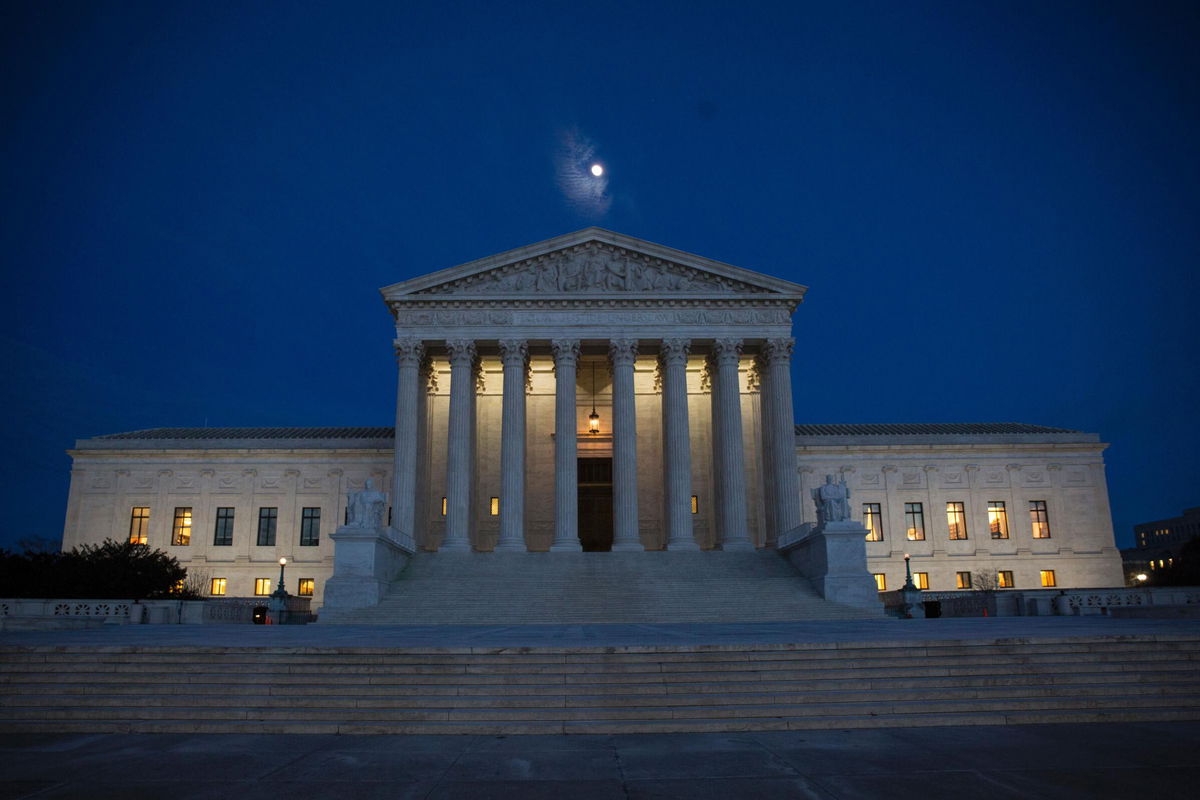Supreme Court won’t say if secretive surveillance court must disclose opinions

By Ariane de Vogue, CNN Supreme Court Reporter
The Supreme Court declined on Monday to consider a request from the American Civil Liberties Union and other groups concerning whether a special court that reviews government requests for electronic surveillance for foreign intelligence purposes must disclose significant opinions that came after 9/11.
The request marked the first time the Supreme Court has been asked to resolve whether the Foreign Intelligence Surveillance Court must make its secret opinions public, though subject to redactions.
Justices Neil Gorsuch and Sonia Sotomayor dissented.
“Even though the (Foreign Intelligence Surveillance Act) Court often hands down significant interpretations of the government’s secret surveillance authorities, the public is usually in the dark about those interpretations,” said Steve Vladeck, CNN Supreme Court analyst and professor at the University of Texas School of Law. “All that the ACLU was asking the Supreme Court was to consider whether there are any circumstances in which the public has a right to know what the FISA Court has said. By turning away its appeal, the justices have suggested, at least implicitly, that the answer is no. Whether one associates abuses of our foreign intelligence surveillance authorities with Edward Snowden or Carter Page, the bottom line is still the same: that those abuses will be harder for the public to see.”
The ACLU and other groups, which also include the Knight Institute and the Media Freedom and Information Access Clinic at Yale Law School, were represented by former George W. Bush Solicitor General Theodore R. Olson.
They argued that the FISC sometimes authorizes “broad surveillance regimes” with far-reaching implications for US citizens and “residents who are not the ostensible targets of the government’s surveillance.” Olson wanted the Supreme Court to recognize a First Amendment right to access significant opinions.
Olson seeks the documents from between 2001 and 2015, when the government began asking for approval of broad forms of surveillance and when new technologies gave the government more opportunity to conduct sweeping surveillance.
Congress required the government to review significant FISC opinions for public release when it passed the USA Freedom Act in 2015 but the review is conducted solely by executive branch officials.
The lawsuit has extended for years and arises out of a petition filed with the FISC in 2016 seeking opinions and orders issued between September 22, 2001, and the passage of the Freedom Act in 2015. The court has turned away previous requests for public access to its opinions concluding that such access is a matter for the executive branch itself to decide. In rulings from last November, however, the court shut the door on further proceedings concluding that the court didn’t even have the power to consider the lawsuit.
“Access would allow the public to understand the government’s surveillance powers and practices, promote confidence in the FISA system, strengthen democratic oversight, and improve judicial decision-making,” Olson said in court briefs.
The FISC was established by Congress in 1978 when Congress passed the Foreign Intelligence Surveillance Act.
The court is comprised of 11 district court judges who sit in Washington and are designated by Chief Justice John Roberts. Each serves for seven years on staggered terms. They come from seven judicial circuits and sit for one week at a time on a rotating basis. The current presiding judge is Judge James E. Boasberg, who sits on the US District Court for the District of Columbia.
The government submits applications to the court for approval of electronic surveillance, physical search and other activities for foreign intelligence purposes. Once an application is received, a member of the court’s legal staff evaluates whether it meets legal requirements under FISA.
“Secret court rulings are corrosive in a democracy, especially when they so often hand the government the power to peer into our digital lives,” Patrick Toomey, senior staff attorney at the ACLU’s National Security Project said in a statement. “These opinions are the law and they should be public, not kept hidden where only a secret court and the government know what they mean for our rights.”
This story has been updated with additional background information and reaction.
The-CNN-Wire
™ & © 2021 Cable News Network, Inc., a WarnerMedia Company. All rights reserved.